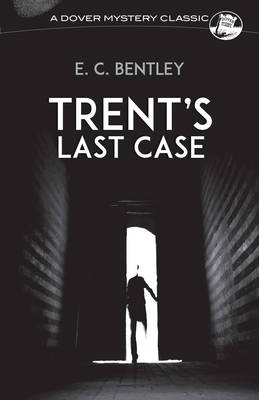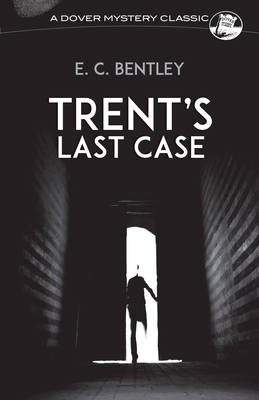
- Afhalen na 1 uur in een winkel met voorraad
- Gratis thuislevering in België vanaf € 30
- Ruim aanbod met 7 miljoen producten
- Afhalen na 1 uur in een winkel met voorraad
- Gratis thuislevering in België vanaf € 30
- Ruim aanbod met 7 miljoen producten
Zoeken
€ 12,45
+ 24 punten
Uitvoering
Omschrijving
"One of the few genuine classics of detective fiction." -- The New York Times. Written in reaction to what Bentley perceived as the sterility and artificiality of the detective fiction of his day -- particularly stories that featured infallible detectives of the Holmesian stripe -- Trent's Last Case (1913) features Philip Trent, an all-too-human detective who not only falls in love with the chief suspect but reaches a brilliant conclusion that is totally wrong.
The case begins when millionaire American financier Sigsbee Manderson is murdered while on holiday in England. A London newspaper sends Trent to investigate, and he is soon matching wits with Scotland Yard's Inspector Murth as they probe ever deeper in search of a solution to a mystery filled with odd, mysterious twists and turns. Called by Agatha Christie "one of the best detective stories ever written," Trent's Last Case delights with its flesh-and-blood characters, its naturalness and easy humor, and its style, which, as Dorothy Sayers has noted, "ranges from a vividly coloured rhetoric to a delicate and ironical literary fancy." New Introduction by Douglas G. Greene.
The case begins when millionaire American financier Sigsbee Manderson is murdered while on holiday in England. A London newspaper sends Trent to investigate, and he is soon matching wits with Scotland Yard's Inspector Murth as they probe ever deeper in search of a solution to a mystery filled with odd, mysterious twists and turns. Called by Agatha Christie "one of the best detective stories ever written," Trent's Last Case delights with its flesh-and-blood characters, its naturalness and easy humor, and its style, which, as Dorothy Sayers has noted, "ranges from a vividly coloured rhetoric to a delicate and ironical literary fancy." New Introduction by Douglas G. Greene.
Specificaties
Betrokkenen
- Auteur(s):
- Uitgeverij:
Inhoud
- Aantal bladzijden:
- 176
- Taal:
- Engels
- Reeks:
Eigenschappen
- Productcode (EAN):
- 9780486296876
- Verschijningsdatum:
- 11/07/1997
- Uitvoering:
- Paperback
- Formaat:
- Trade paperback (VS)
- Afmetingen:
- 133 mm x 210 mm
- Gewicht:
- 136 g

Alleen bij Standaard Boekhandel
+ 24 punten op je klantenkaart van Standaard Boekhandel
Beoordelingen
We publiceren alleen reviews die voldoen aan de voorwaarden voor reviews. Bekijk onze voorwaarden voor reviews.











